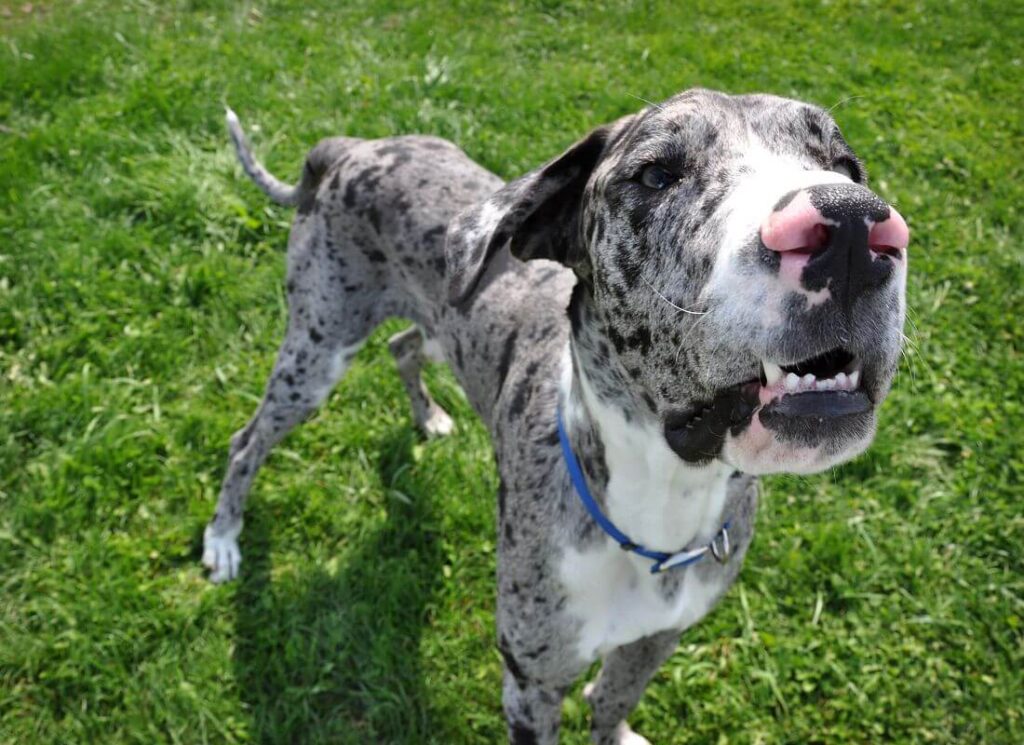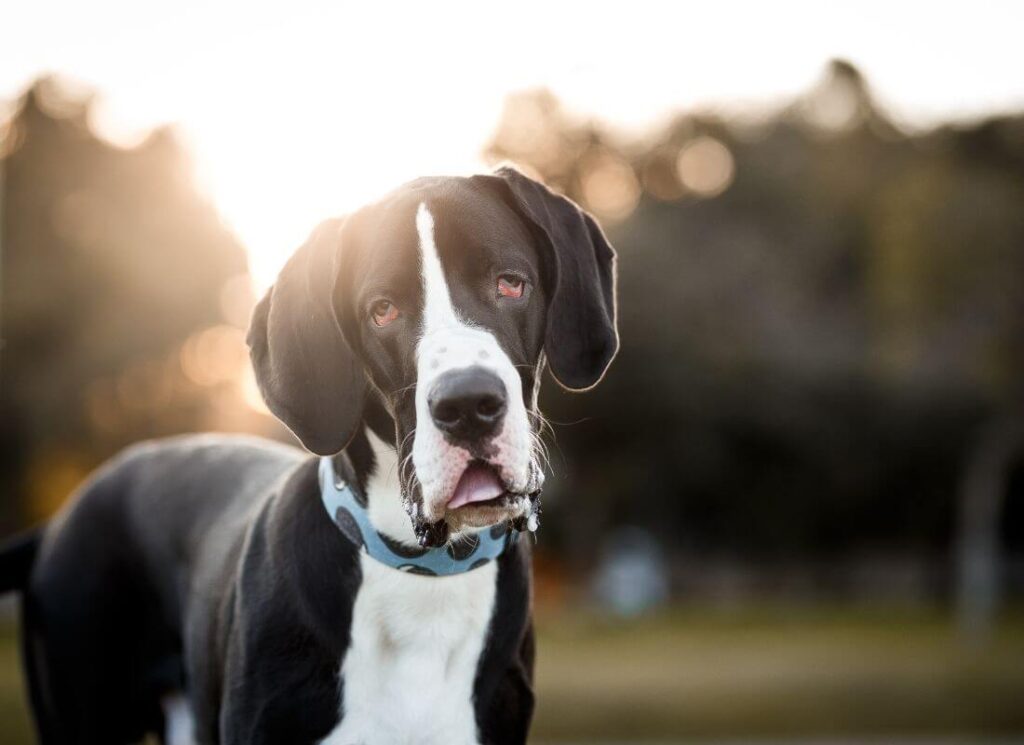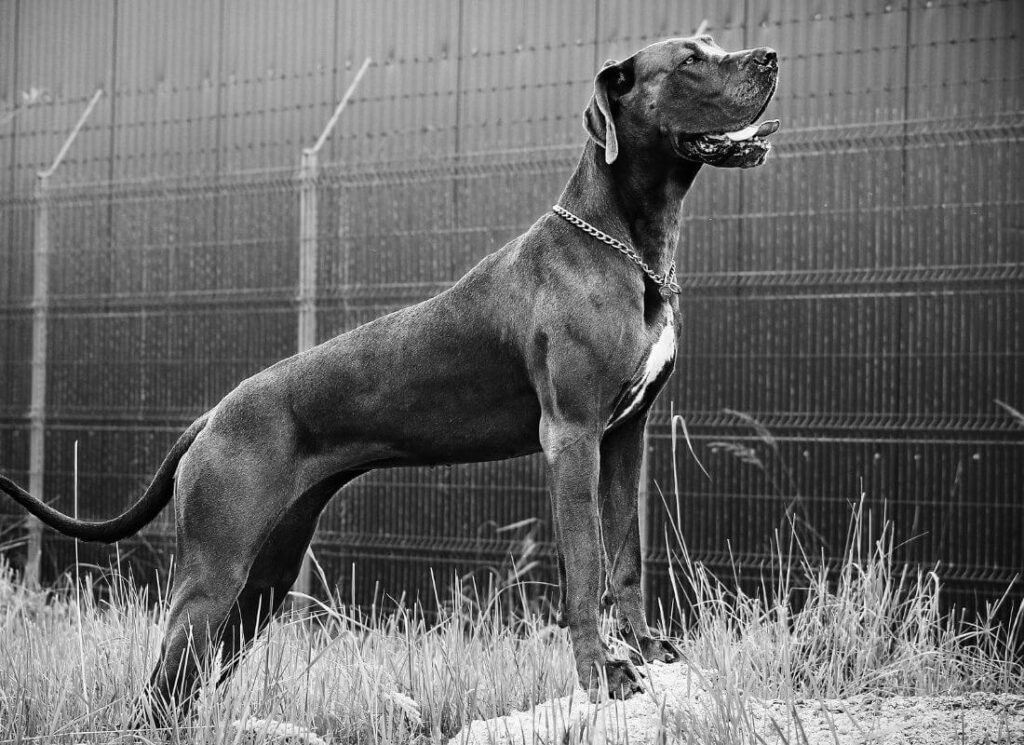Amid the current concerns surrounding pet nutrition, there’s a growing unease among pet owners regarding the conventional recommendations from veterinarians. Royal Canin, Hill’s Science Diet, and Purina stand out as the top three brands frequently endorsed by vets – and for valid reasons. However, there’s a notable confusion among pet owners about why vets recommend Royal Canin, as some find the ingredients questionable.
Whether we want to believe it or not, Royal Canin stands out as one of the cleanest and most biologically suitable pet foods. However, many people find the ingredients list confusing and in conflict with what they believe to be correct.
So let’s dig into this. Here are a few topics I’ll cover below!
- The truth about Royal Canin ingredients & sourcing
- The reason why veterinarians sell Royal Canin food in their office
- The quality control and science behind Royal Canin pet food
- Whether or not veterinarians receive kickbacks or incentives for learning about and promoting Royal Canin food to their clients
- The reasons why Veterinarians recommend foods like Royal Canin, instead of fresh, raw, or “higher quality” kibbles

Are Royal Canin Ingredients Bad?
Many people promote that Royal Canin food is made up of “absolute trash”.
The first two ingredients in MANY Royal Canin formulas are:
Chicken By-Product Meal
Corn
To the uneducated pet owner, it’s understandable that those ingredients seem not only alarming but cheap! This is especially true when pet owners are presented with this information by those that they consider to hold a position of expertise (such as their dog trainer or an employee at a pet store).
How can Royal Canin justify its luxury price point with those ingredients?
The answer is simple. Those ingredients aren’t bad. The ingredients in Royal Canin pet food result in a nutritious, bioavailable dry diet that has been proven time and time again.
Hear me out. I know what you have heard AND what you are thinking!
“By-products in pet food are bad!”
“Corn is a filler!”
I’m going to debunk those myths below, but before we get there, let’s start with information sourcing!
The Truth About “Canine Nutritionists”
Where did you hear those things from? Did you hear them from a board-certified Veterinary Nutritionist? Or did you hear them from an influencer, blogger, or “canine nutritionist”?
It’s important to note that “Canine Nutritionist” (and titles similar to it) are made up. The only nutritionist with legitimate credentials will have a board certification in Veterinary nutrition, and/or a PhD in Animal Nutrition. Most other “nutritionists” have little more than a simple online course under their belt.
Social media is littered with people who have claimed the title of “nutritionist” and share it as a matter of authority. In many cases, they are using their authority to promote “holistic” and “natural” foods through brand deals and affiliate links.
These very same people who say that “veterinarians don’t learn much about nutrition” are ironically the same ones whose credentials often consist of nothing more than a $10 online course that took a weekend to complete.
We must be critical of those who obtain these “pet nutrition expert” type titles, as many times they are simply regurgitating what they’ve been taught by other profit-driven influencers such as Dr. Judy Morgan.

Ingredients in Royal Canin Pet Food
As mentioned above, the ingredients in Royal Canin pet food are often looked at with scrutiny by those who promote the idea of “natural” diets for dogs.
The two controversial ingredients in Royal Canin and many other veterinary-recommended dog food brands are corn and by-products.
Let’s break this down!
Chicken By-Product Meal
By-products in pet food are often misunderstood, but they can contribute valuable species-appropriate nutrients, proteins, and amino acids.
It’s a complete myth that by-products are ground-up waste from the slaughterhouse floor, or that they contain roadkill, euthanized pets, and diseased animals. The people who spread misinformation like this are nearly always trying to promote or sell a different product or agenda.
In the U.S. alone, we process billions of chickens for human consumption. Every single one comes with nutritious organs, cartilage, fat, and bone that would go to waste if they weren’t used in pet food.
When these chicken parts are used in dog food, they are a natural source of nutrients such as calcium, phosphorus, Iron, B-12, Folate, Selenium, Choline, and more. Avoiding the use of by-products in pet food formulations may mean the company must make up nutritional deficiencies in the formula with additional synthetic vitamins.
Not that there is anything inherently wrong with vitamins and minerals being added to the diet, but it does feel good to know that so many vitamins, minerals, and amino acids in our pet’s Royal Canin food may be coming from natural ingredients (whole chicken) rather than powders.
Just because “by-products” sounds bad, doesn’t mean that it is! But if you are still on the fence, I’ll leave you with this, too: if you’ve ever given your dog glucosamine, chicken paws, trachea, liver treats, raw food, bones of any kind, pig ears or bully sticks, you’ve given your pet by-products.
Enough said. Stop worrying about by-products in pet food, especially when it’s seen in veterinary-recommended brands.
Corn in Pet Food
Many people consider corn to be a filler in pet food, but have no clue why they feel that way. While it may seem counter-intuitive to feed corn to an animal that should have a lot of meat, consider this!
Corn is more digestible than beef. It also has a similar amino acid profile, making it a great source of necessary nutrients.
All dry kibble diets require some kind of starch to bind the meat products together. Many people are surprised to learn that corn may be a superior choice to other grains and legumes! It’s not a filler, and also not something to be afraid of.
Not only can corn be a source of certain amino acids, it provides energy and fiber.
In Royal Canin foods where chicken by-product meal and corn often make up the first 2 ingredients, we can be almost positive that the majority of the nutrition in the formula comes from those two things. That’s phenomenal.

Why Do Vets Recommend Royal Canin?
Even if you don’t buy into the concept that chicken by-product meal and corn are nutritious, bioavailable ingredients in pet food, you have to admit that as a company Royal Canin is incredible.
Curious about why? Here are some stats:
- The ROYAL CANIN® brand has pledged to achieve carbon neutrality certification by the conclusion of 2025. The initial product range is set to attain carbon-neutral certification by 2023, showcasing the brand’s dedicated efforts towards environmental sustainability.
- Ongoing laboratory testing at every stage of production ensures product cleanliness and safety
- 500,000 lab analyses are done every year by the Royal Canin team. That’s 1400 tests done every day.
- Suppliers and distributors must meet stringent quality protocols that meet their standards
- A sample of every raw material brought to the factory is kept for 2 years. This means that every bag purchased is fully traceable back to the source for at least the duration of its shelf life.
- The Royal Canin Foundation provides financial and organizational backing to projects worldwide, amplifying the positive impact that pets have on human health and well-being. These initiatives focus on three primary areas: enhancing the health and well-being of working dogs, and supporting pets that contribute to both human health and medical well-being
- All of Royal Canin’s products are not crafted based on trends in human nutrition or the preferences of pet owners. Instead, they are meticulously researched and developed using innovative nutritional science and observations of cats and dogs.
Veterinarians recommend Royal Canin Foods because the company has a proven track record of providing safe, nutritious, and highly researched foods to pet owners.
We haven’t even touched yet on the millions of dollars that Royal Canin has poured into nutrition and pet health research. They recently developed a simple, non-invasive test that cat owners can use to detect blood in their pet’s urine, helping owners detect health problems in their cats sooner than ever before.
The put this simply, Royal Canin is often vilified by people who lack credentials in pet nutrition because doing so allows them to sell products that are, to put this bluntly, inferior.
Because no matter how good it may feel to purchase that “holistic” pet food with “good ingredients”, the fact is that those companies, and those foods, simply don’t compare. Many of them are mass-produced in huge factories that make hundreds of other brands, for example.
Veterinarians recommend Royal Canin because it’s a well-formulated food with traceable sourcing that works.

Human Diet Trends & Pet Food
Royal Canin has said many times that they refuse to give in to human diet trends to sell food.
Human diet trends are part of toxic diet culture; it’s part woo-woo, part marketing, and 100% predatory.
Here are some examples of human diet trends:
- Fasting and calorie restriction
- Gluten, grain, dairy, soy, nut, sugar, wheat free foods promoted the ‘healthier’ choice
- Keto, Paleo, Primal, Whole 30, etc.
- Social media fitness & diet influencers
Pet diets often mirror current trends in human food culture.
The Keto diet, which has gained popularity in recent years, raised concerns among researchers and doctors due to its potential dangers.
Despite this, pet food brands capitalized on the trend, introducing dog foods aiming to induce a state of Ketosis. Similarly, the grain-free trend in human diets influenced pet foods, and brands flooded the market with grain-free options.
However, the reality is that these pet foods, while free of grains, often substitute them with legumes and potatoes, contributing to nutritional issues like heart disease in dogs.
Social media is inundated with brands and influencers promoting supposedly healthier and more natural pet foods, yet many of these influencers don’t feed these products to their pets.
It’s a marketing strategy more than a genuine commitment to pet health.
In this landscape, Royal Canin takes a firm stand against such trends. The brand prioritizes science and published research over fleeting consumer trends.
Author’s Note: It’s important to note that this stance does not apply to those with medical conditions or allergies treated with specific diets under the supervision of qualified nutritionists or doctors.

Do Veterinarians Receive Kickbacks for Promoting Royal Canin?
The notion of veterinarians receiving kickbacks for promoting specific pet food brands, such as Royal Canin, is a pervasive and damaging myth.
Veterinarians play a crucial role in promoting pet health and often recommend therapeutic pet food diets tailored to address specific medical conditions. Royal Canin, a well-established brand in the veterinary field, offers a range of therapeutic diets formulated to support various health needs in pets.
If a veterinarian recommends or prescribes Royal Canin foods, there is a reason! For example, Royal Canin makes diets that are safe and helpful for a range of conditions where proper nutrition is of key importance.
Some examples of therapeutic diets a veterinarian might recommend include:
- Weight loss
- Hydrolyzed protein (for dogs with severe allergies)
- Liver, kidney, or Urinary care
- Gastrointestinal
- Vegetarian
Veterinarians base their suggestions on scientific research, nutritional expertise, and the specific dietary requirements of individual pets. The major companies that formulate therapeutic diets (Purina, Hill’s, and Royal Canin) have a team of board-certified Veterinary Nutritionists on staff who are available for veterinarians to call on if advice is needed before making a recommendation.
No other food brands offer this incredible access to experts with nearly 15 years of upper-level education in the field of animal biology and nutrition.
Many uneducated consumers may be incorrectly led to believe that these specialty diets are purely marketing; however, this assumption fails to acknowledge the role of nutrition in treating specific diseases, and the amount of research that has gone into each formula.
The notion of kickbacks in the veterinary profession is not only unfounded but also damaging to the trust between pet owners and veterinarians. Veterinarians adhere to ethical standards that prioritize the health of their patients above all else. Accusations of kickbacks undermine the integrity of the veterinary profession and can erode the confidence that pet owners place in their veterinarians’ recommendations.

Why Do Veterinarians Recommend Royal Canin Instead of Fresh Diets?
While fresh diets have gained popularity among some pet owners, veterinarians often advocate for commercially formulated diets.
This may confuse individuals who hold the mistaken belief that dry pet foods are excessively processed or harmful and that opting for fresh or raw foods is a panacea for all health issues.
Commercially available pet foods, including those from reputable brands like Royal Canin, undergo rigorous testing and quality control measures to ensure nutritional balance and safety. These formulations are meticulously crafted to meet the specific dietary needs of different life stages, breeds, and health conditions. The consistency and reliability of these commercial diets provide a level of assurance that can be challenging to replicate with homemade or fresh diets.
Moreover, formulating a nutritionally complete and balanced diet for pets requires a deep understanding of their specific nutritional requirements. Veterinarians can confidently recommend commercial diets that have undergone thorough research and testing. These diets often include essential nutrients in precise proportions, contributing to optimal pet health.
Another crucial consideration is the potential for nutritional imbalances and deficiencies in homemade or fresh diets. Crafting a nutritionally sound diet for pets involves careful attention to ingredient selection, nutrient content, and preparation methods. Without proper knowledge and guidance, pet owners may inadvertently expose their pets to nutritional inadequacies that could impact their health over time.
To put this simply, veterinarians know that a well-formulated dry diet (for example, Royal Canin) is everything an animal needs. These diets are safe and reliable, too.
If you’ve heard anything else, check your source. Are they trying to promote an agenda and/or sell you on a different product?
Leave a Reply